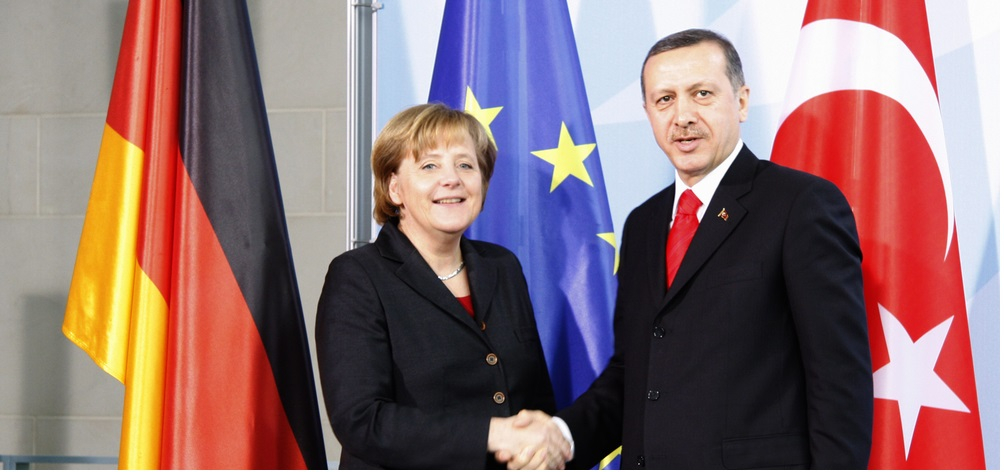
Practical information
Being both the country of refuge and of transit, Recep Tayyip Erdogan’s Turkey plays a key-role in the Syrian refugee crisis. The agreement between Brussels and Ankara to manage the flow of migrants, signed with German approval, caused much debate. It also pushed the question of Turkey’s possible membership to the European Union, with the erasure and liberalization of visas being the first qualification.
What is the state of the Turkish-European relationship today? What is Angela Merkel’s strategy toward the Turkish Republic? Is it possible for Europe and Turkey to face the Syrian crisis together?

17 :30 – 19 :30
· Marc Pierini, former EU ambassador to Turkey, researcher invited to Carnegie Europe.
Turkey, what kind of partner for the EU?
· Bahadır Kaleağası, International coordinator of TUSIAD (Turkish Industry and Business Association) in Brussels and President of the Institut du Bosphore.
The EU, what kind of partner for Turkey?
· Thomas Gutschker, Responsible for the international sector of Frankfurter Allgemeine Sonntagszeitung, the weekly German newspaper, F.A.Z.
The role of Turkish-German relations.
The debate is moderated by Dorothée Schmid, responsible for the Turkish/Middle East Program.
Related Subjects
Other events

From Ambition to Action: Exploring Technological Partnerships with India
The 16th EU-India Summit, held on January 27th in New Delhi with European leaders António Costa, Ursula von der Leyen, and Prime Minister Narendra Modi, marks a significant milestone in deepening EU-India relations. At the same time, official bilateral visits from EU member states are on the rise, including that of the French President, who visited India in February to participate in the Artificial Intelligence Summit. As India asserts its technological ambitions and seeks to reduce its dependence on China, Europe is stepping up its efforts to diversify its strategic partnerships.

The Enlargement of the European Union: A Strategic Choice? France, the Western Balkans and the EU in an Uncertain Geopolitical Context
Russia’s war against Ukraine has brought the enlargement of the European Union back to the centre of European strategic debates. In this context, the Western Balkans have regained heightened visibility in discussions on the continent’s security, at a time when the international environment is marked by a growing number of destabilising factors.






